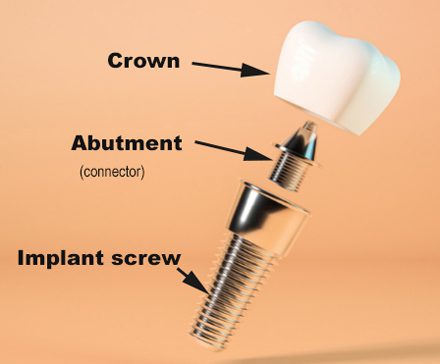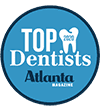Does this persistent pain in my tooth beneath the crown mean that it’s dying? In early August, I received 3 same-day crowns on my bottom right teeth. When I chew on that side of my mouth, one of the teeth hurts, and I feel nerve pain. I returned to the dentist twice. Each time he shaved the tooth and said that the problem was from the way that I chewed. Before I got the crowns, I did not feel any pain. Why is my dentist blaming this on me? Could the way I chew affect same-day crowns differently than my natural teeth? I am annoyed. Thanks for your help. Myra from SC
Myra,
You would need an exam and X-ray for an accurate diagnosis. However, it is unlikely that your sensitivity and pain are because you have a same-day crown. A dentist uses precise CAD/CAM technology, which makes them easier for the dentist to fit.
Why Do Your Same-Day Crowns Hurt?
When your same-day crowns—or any new crowns—hurt when you chew, there are two possible causes.
- Your bite is too high – If a dental crown is higher than the surrounding teeth, the upper teeth hit it first and harder than the other teeth when you chew. Your tooth will become sensitive.
- Your tooth is infected – If a tooth is infected, the ligament connecting your tooth and jawbone can become inflamed. When you bit or chew, the tooth is tender and sensitive. Or the inflammation may cause a constant toothache.
Lingering Pain After a Bite Adjustment

Dental implant
If your pain and tingling continue despite your dentist adjusting the bite twice, your bite is probably not too high. It is time for your dentist to x-ray your tooth and see if it is infected.
Signs of a tooth can be subtle on an x-ray. If your dentist cannot see an infection, you may need a second opinion from an endodontist (root canal specialist). The pain you describe sounds like you have an infection that needs prompt attention to prevent the condition from worsening and requiring extraction and a dental implant from a periodontist (gum, bone, and implant specialist).
Ask your dentist for a referral to an endodontist. Or, if you can self-refer to a specialist, schedule an appointment promptly.
Dr. David Pumphrey, an Atlanta periodontist, sponsors this post.







